The education sector in China is a topic of great interest and importance. China has made significant strides in the field of education over the years, with a strong emphasis on providing quality education to its citizens.
The Chinese education system is known for its rigorous academic standards and competitive nature.
The education sector in China is a dynamic and evolving field, constantly striving for excellence and innovation. It plays a crucial role in shaping the future of the country and its citizens.
This article will explain to education businesses how to lure Chinese oversea students, and top strategies to communicate in China.
Education Market in China
The education system in China requires compulsory schooling for 9 years, divided into 6 years of primary education from the age of 6 and then 3 years of intermediate education (equivalent to secondary school).
After the first cycle of secondary school, students have the possibility to choose whether or not they wish to continue their studies for three more years to complete their secondary education (high school).
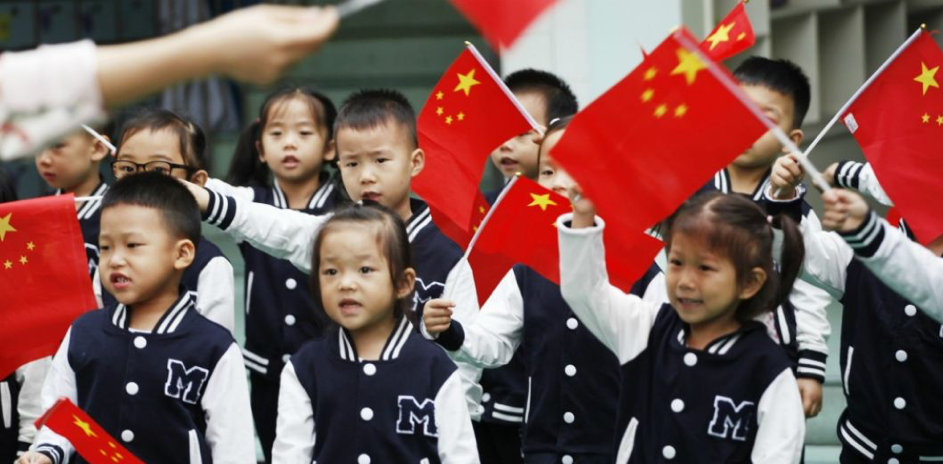
The Chinese education system enjoys an excellent reputation
According to an OECD report published in 2012, Chinese students were ranked first in PISA (test of the International Program for the Monitoring of Student Learning).
The exam aims to assess the skills of students from 65 countries aged 15 in various academic fields such as mathematics, science, and reading.
As a result, many Western governments would like to be able to achieve the same results as the Chinese education system with the same discipline.
Challenging the Chinese education system
Despite the fact that the government supports the development of education, the Chinese public system is now a scene of strong contradictions.
With social development and China’s openness to the world, more and more parents are choosing to provide their children with an international education through English language learning and study abroad. This is why many private schools have been established in China in recent years.
The four major problems of the Chinese education system
Long hours of lessons and a lot of content
Chinese students spend much more time in school than their Western classmates. The number of days spent in school is much higher and the number of holidays much shorter. However, school days in China have recently lengthened!
On average, Chinese students have four weeks of holidays in winter and seven in summer (including weekends and public holidays) compared to 8 weeks during the year and 9 in summer for their French classmates (for whom weekends, and public holidays are not included).
The school starts at 7:30 am and ends at 4:00 pm with a 1,5 hour of break for lunch and a nap, a total of 7:30 hours against 6 hours for French students which have three break times.

After the end of their school day, they must take private lessons from their families. These courses are not mandatory but strongly recommended if they do not want to fall behind their other classmates.
These additional courses are necessary because a normal school day is not enough to allow teachers to cover the entire curriculum of the Ministry of Education. After these extra classes, the students go home and start their homework.

Most students get up at 6am and go to bed at 10pm or 11pm, their day is mainly devoted to learning and homework.
In China, children do not have time for other activities such as sports, leisure or family time, social activities. This leads to poor communication and problem-solving skills in real life.
Most Chinese students are good in theory. In terms of application and experimentation, they cannot compete with Western students.
In addition, the question of equal opportunities arises. With such a demanding education system, many cannot afford to integrate and pay for additional courses. As a result, many of them drop out after the first 9 mandatory years.
The obsession with “results”
The Chinese people give obsessive importance to achieving objectives and results.
This goes hand in hand with the concept of “keeping face“. This Chinese concept is associated with reputation, prestige, and social status. It affects education, wealth, and social position.
Students must be good students and study for the good of their country, and their family and to make their parents proud.

At school, excellent students are rewarded with prizes and those with difficulties are left out.
Students study with the aim of being the best in the ranking. The philosophy of education in China is that you have to be good everywhere and in everything. Students study all subjects (history, geography, biology, mathematics) from an early age.
The competition for a good ranking promotes rapid memorization but not real learning. They generally do not understand the purpose of what they are learning, which leads to disinterest. For the most part, Chinese students lack clear objectives and development.
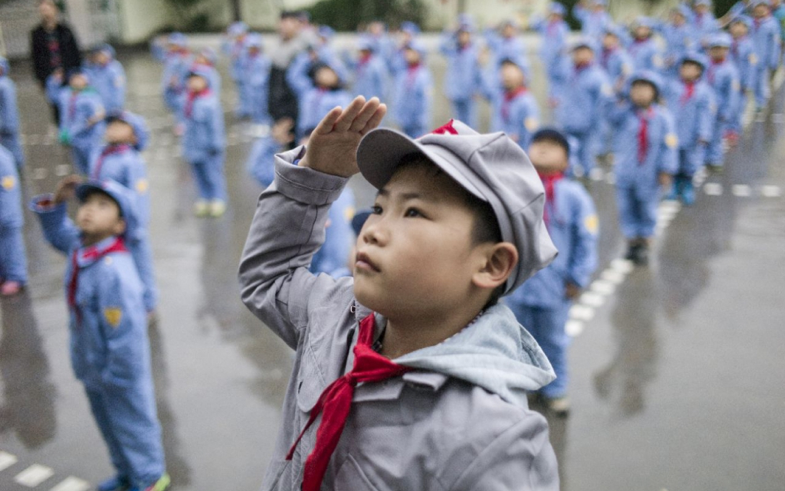
Although Chinese students analyze literature, they are rarely expected to write their own essays. It is preferable that they memorize the text rather than write one.
Students are often reluctant to ask questions because it may demonstrate a lack of knowledge. They must “keep face”.
The university entrance exam, a dreaded moment for students and their families
Every year, nearly 9.15 million Chinese high school students prepare for the university entrance exam. The “GaoKao“ or the National Higher Education Entry Examination in China. This is one of the most dreaded moments for all students and their families.
This three-day exam will determine which university they can attend, which will influence their future professional careers and social position.
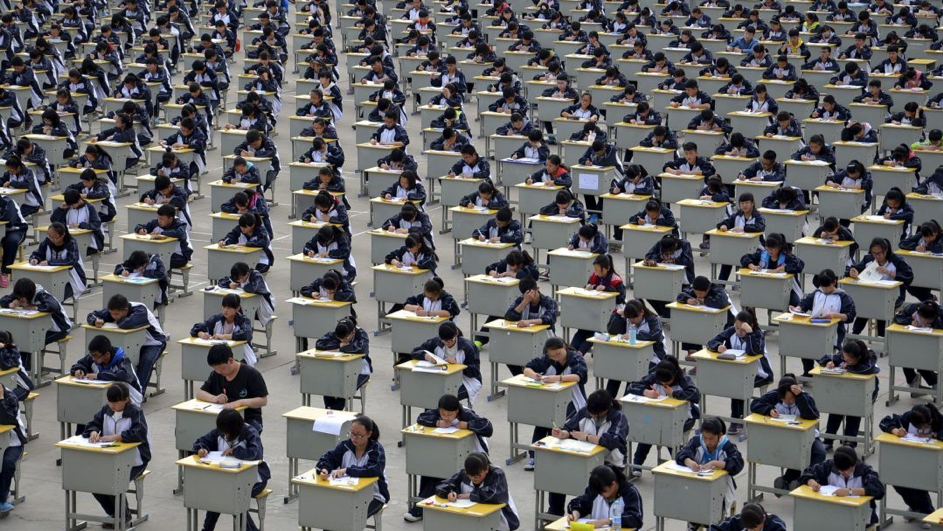
This exam is increasingly subject to criticism. On the one hand, it puts a lot of pressure on entire families and on the other hand, it does not promote the personal development and fulfilment of students who are obliged to comply with the system if they want to have the hope of entering one of the country’s universities.
Among all the participants, only half will be allowed to enter university.
New international schools are emerging in China
Today, many international schools are opening their doors in China, which shows the government’s desire to adopt a more flexible system and more Western methods.
To successfully enter the Chinese market, international schools must set up a system able to complement Chinese qualifications with Western values.
The growth of the middle class has led to a sharp increase in the demand for English courses.
The increase in wealth, the demand for skilled labour and the obsession with reputation play an important role in promoting international schools in China.
Attracting Chinese students studying abroad
According to the UNESCO Institute for Statistics, China had more than 928,090 students worldwide, nearly four times more than any other country.
Many Chinese think that studying abroad is much better than studying in their home country. This is not untrue, since having studied abroad will give them access to better jobs in China. As a result, the number of Chinese students seeking higher education abroad is constantly increasing.

The preferred destinations are English-speaking countries such as the USA, Australia, England, Canada and New Zealand. However, there has been a significant increase in countries such as France, Germany, Italy, Japan and South Korea.
There are many opportunities for foreign schools to seize. On the other hand, attracting Chinese students is becoming more and more competitive.
Offer diplomas in their country of origin
In recent years, the international education sector has grown rapidly in China. This is a huge market that will continue to grow as students and parents will prefer international schools and English language learning over local schools.
Equally important, China has a constantly increasing number of expatriates and foreign residents. The latter represent another market to target for international schools in the country.
It is important that schools take into account cultural differences within the country itself and build relationships with local government agencies and regional cultural representatives.
Every education Businesses are competing for attracting Chinese oversea Students. In Italy, they bet on fashion & Luxury education, IN french on Bakeries, in Germany Engineering
List of Solutions to penetrate the Chinese education market
Digital marketing, or the promotion of your activity on the web, is the best way to attract new students to China. Why?
China has the largest number of Internet users in the world, with over 1 billion people connected. Among them, more than 788 million access the Internet through their smartphones, making China the leading country in app sales.
This trend is changing the way people consume and forcing companies to adapt their sales techniques. However, it’s important to note that popular social networks like Google, Facebook, Twitter, Instagram, and WhatsApp are blocked in China.
The country has its own closed Internet system and different social networks. Therefore, international schools looking to establish themselves in the Chinese market need to adapt to the digital communication tools used in China and create official accounts on these platforms.
SEO campaign on BAIDU
Having a Chinese version of your website is indeed a crucial step in attracting Chinese students. By offering content written in Mandarin, you are catering to your target audience who may have limited or no command of English. This demonstrates respect, interest, and dedication towards your clients.
In addition to having a Chinese version of your website, integrating it on Baidu is highly recommended. Baidu is the most popular search engine in China, and having your website indexed on Baidu will significantly increase its visibility to Chinese users.
To integrate your website on Baidu, you will need to follow their guidelines and submit your website for indexing. Baidu provides tools and resources to help you with this process. It’s important to ensure that your website is optimized for Chinese search engine optimization (SEO) practices to improve its ranking on Baidu.
Baidu
BAIDU is the Chinese search engine and also the first most visited site in China. It offers an index of more than 740 million web pages, 80 million images and 10 million multimedia files.
Most often, Chinese students will look for the best schools and information on BAIDU. This is why it is crucial that international schools be among the first research results.
Thanks to referencing campaigns on BAIDU this is possible. SEO is the ultimate way to increase your position on a search engine.
A good SEO is one of the best ways for institutions to stand out on the market and be visible to Chinese students.
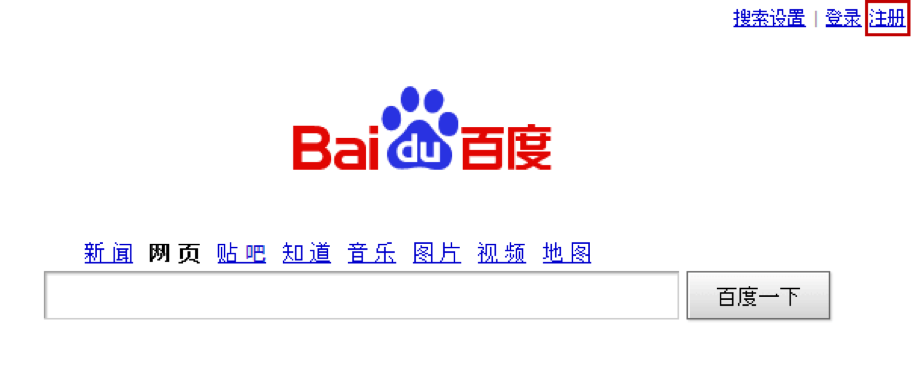
WeChat is the main social network used in China. With 1.671 billion monthly active users connect to the application and spend an average of 70 minutes a day on.
WeChat is very famous because the application provides access to more than just a messaging service, such as games, online shopping and financial services.

Chinese students and parents spend a lot of time on WeChat. This is why schools wishing to establish themselves on the Chinese market must be proactive on this platform.
Sina Weibo
Sina Weibo is one of the most used platforms in China. It is a mix between Twitter and Facebook. Sina Weibo is often referred to as “the Chinese Twitter“.
Sina weibo allows you to create and engage communities, Internet users use the application to get information on recent news, follow current topics or debates while contributing to their own web page.

Sina Weibo users are relatively young. 70% of the 250 million active users are under 30 years of age. They often come from the country’s major cities such as Beijing, Shanghai or Guangzhou.
Chinese students will probably go to Sina Weibo to look for new institutions. Indeed, they are the ones who play the most decisive role in the final choice of their university. It is important for higher education institutions to have a presence on this platform and that is why many schools already have an activity on it.
More information about Weibo Marketing here
QQ Networks
Tencent’s media conglomerate is one of the largest social networks in the world with more than a billion active monthly users.
QQ is the most widely used instant messaging system in China (far ahead of Skype, WhatsApp or Messenger, all blocked in the country). QQ provides users with discussion forums, but also music streams, emails, games and applications to download. Since its inception in 1999, QQ has become a cultural phenomenon that is now an integral part of Chinese daily life.
In the first quarter of 2023, QQ had about 597 million monthly active users on the platform, making Tencent QQ the second largest virtual community in the world behind Facebook.
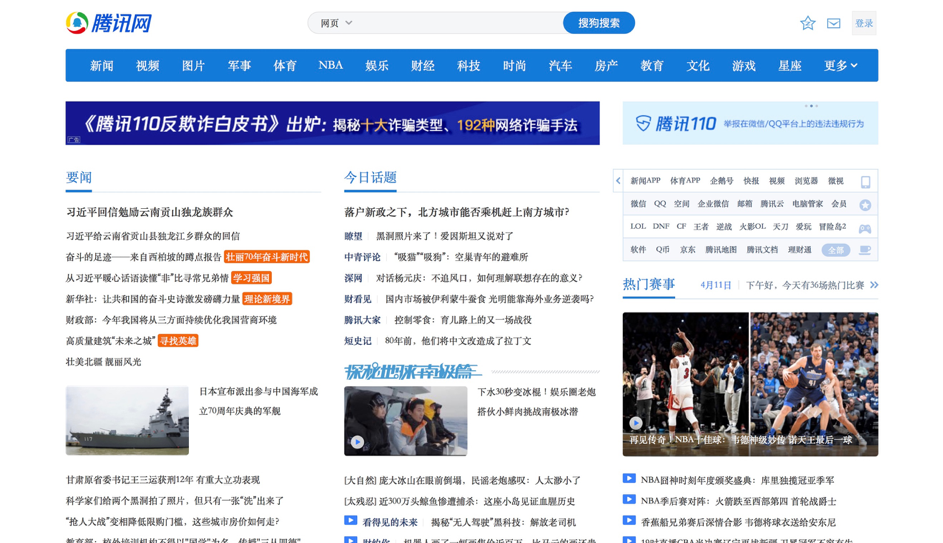
How is this interesting for schools that want to attract more Chinese students?
The suggestion is that schools can effectively reach out to Chinese students by sending promotional offers and targeted content through email or SMS. Similar to how international schools in the West use these methods.
Additionally, schools can utilize the Qzone platform to share photos, videos, and daily blog posts, as it is already popular among millions of users.
By translating their content into Chinese, schools can share it on the platform. Another idea is to involve Chinese students by inviting them to contribute their study experiences, which can attract more prospects.
More about about PR options in China
Seize these opportunities
International schools have a great opportunity to make a lasting impression on Chinese consumers in the coming years.
By utilizing digital marketing and social media, these schools can actively engage with parents and students, showcasing their strengths and unique offerings. Platforms like WeChat and Weibo are popular in China and can be used to share updates and relevant information.
Creating visually appealing content, such as videos and infographics, can help capture the attention of Chinese consumers. By understanding the preferences and behaviors of Chinese consumers, international schools can establish trust and credibility, ultimately attracting more enrollments.
Online Education
Online education has become increasingly popular in China in recent years. With the rapid development of technology and the widespread availability of the internet, more and more people are turning to online platforms for their educational needs.
The convenience and flexibility offered by online education have made it an attractive option for students of all ages. Whether it’s learning a new language, preparing for exams, or pursuing a degree, online education provides a wide range of courses and programs to choose from.
Additionally, online education in China has also opened up opportunities for individuals in remote areas to access quality education that may not have been available to them otherwise. As the demand for online education continues to grow, it is expected that more innovative and interactive learning platforms will emerge, further revolutionizing the way education is delivered in China.
According to estimates, China’s education market is expected to reach RMB3 trillion by the end of 2023. The education industry is undergoing significant changes due to the increasing customization of online education services. Many individuals are creating training programs to enhance people’s knowledge, while platforms are integrating technology to provide more interactive and collaborative learning options
We can help you! Contact us!
The education sector in China has experienced remarkable growth and progress. China, with its vast population and a strong focus on education, has made substantial investments in its education system. One notable aspect of the education sector is its high enrollment rates.
China has also made significant efforts to develop its higher education institutions, resulting in an increase in the number of universities and research institutes. Many of these institutions have gained global recognition for their academic programs and research contributions.

Founded by Olivier Vérot and Philip Qian, GMA helps luxury brands perform in China. Until now, we have already worked with Yves Saint Laurent, Les Georgettes, and Vogue. So, we can help you build your launch plan and your project to enter Tmall Luxury Pavilion. We can talk about your project!

Thus, if you have questions about selling, advertising, exporting, etc. your perfumes in China, contact us directly, and we will reply to you within 24 hours.



3 comments
Ron Watroba
Greetings sir/madam
I am a HK permanent resident and coach that has been providing academic and career guidance to HK and Chinese students (teenagers) over the past 3 years. In addition I am a Headhunter that has been practicing globally over the past 27 years. This activity has seen me interview more than 10,000 executives with successful campaigns fulfilled in about 25 countries.
Earlier this year (April) I successfully hosted a careers seminar at a high school in Nanjing. This in-person event was hugely successful as communicated by the school’s administrators.
I presently partner with HKU Business School through the provision of career coaching for their Masters and MBA students, and feel my broad commercial exposure will be greatly appreciated by aspirational high school and University students in China.
I seek your guidance as to the best ways to introduce my diverse services to Chinese students.
Best regards,
Ron Watroba
Julia
I got interested a few years ago about the “Tiger mom” interest in the news and later came the truth beyond tiger moms. Striving for excellence and getting better by learning, this made and still makes a great opportunity for foreign schools in the Chinese market. Chinese parents want the best for their child: foreign schools are seen as clever schools that not everybody can go to, I guess it’s an easy catch for the concerned schools.
Loïck
Education is a current topic and, more than ever, lucrative with this outbreak. It will be a good opportunity for foreign schools when the outbreak will end.